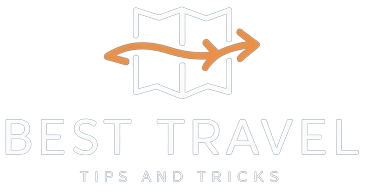Starting a travel agency can be a rewarding and exciting business venture, but it also requires careful planning and consideration.
From developing a business plan to obtaining the necessary licenses and permits, there are several steps you need to take to get your travel agency off the ground.
We will explore the essential steps and considerations you need to keep in mind when starting a travel agency.
This blog will provide you with valuable insights and guidance on how to start a successful travel agency.
Planning and Research
Before diving into the logistics of starting a travel agency, it’s crucial to conduct thorough planning and research.
Identify your target market, niche services, and competition.
Evaluate industry trends and travel preferences to tailor your offerings effectively.
Develop a comprehensive business plan outlining your goals, marketing strategies, and financial projections.
Research the legal requirements and regulations governing travel agencies in your area to ensure compliance.
Utilize industry resources and network with established travel professionals to gain valuable insights.
By investing time in meticulous planning and research, you will lay a solid foundation for your travel agency’s success.
Legal Requirements and Licenses
Once you have completed your initial research and planning, the next crucial step in starting a travel agency is ensuring compliance with legal requirements and obtaining the necessary licenses.
Familiarize yourself with the regulations governing travel agencies in your area, which may include licensing, bonding, and insurance requirements.
Consult with a legal advisor to ensure that you are meeting all the necessary legal obligations to operate a travel agency legally.
By addressing these legal aspects early on, you can build a solid foundation for your business and avoid potential setbacks in the future.
Finding Your Niche
Finding your niche is vital in setting your travel agency apart from the competition.
Consider specializing in a particular type of travel, such as luxury vacations, adventure travel, or corporate travel.
Conduct market research to identify gaps in the market and determine the needs and preferences of your target audience.
By focusing on a niche market, you can tailor your services to meet specific demands, establish yourself as an expert in that area, and attract a loyal customer base.
Creating Partnerships and Networks
Collaborating with airlines, hotels, tour operators, and other travel-related businesses is crucial for the success of your travel agency.
Developing strong partnerships can not only provide you with exclusive deals and discounts but also enhance the overall customer experience.
Networking with industry professionals, attending travel trade shows, and joining travel associations can help you expand your reach and stay updated on the latest trends.
Cultivating these relationships can open up new opportunities for your agency and establish your credibility in the travel industry.
Marketing and Promotion Strategies
Once you have solid partnerships in place, it’s time to focus on marketing and promoting your travel agency.
Utilize social media platforms, create a professional website, and invest in search engine optimization to increase your online visibility.
Develop enticing travel packages, run targeted advertising campaigns, and engage in content marketing to attract potential clients.
Utilize email marketing to stay in touch with your existing customer base and offer exclusive promotions.
Collaborate with influencers and travel bloggers to reach a wider audience.
Crafting a strong marketing strategy will help you showcase your unique offerings and attract new customers to your travel agency.
Providing Excellent Customer Service
In the competitive travel industry, exceptional customer service can set your agency apart from the rest.
Train your staff to anticipate and exceed customer expectations, handling inquiries promptly and courteously.
Offer personalized recommendations and support throughout the booking process and even after trips are completed.
Encourage feedback and reviews to continuously improve your services.
Remember, happy customers are more likely to become repeat clients and refer others.
By prioritizing customer satisfaction, you can build a strong reputation and cultivate loyal relationships that will drive the success of your travel agency.
Managing Finances and Operations
Managing Finances and Operations are crucial aspects to consider when starting a travel agency.
Establish a detailed budget that includes expenses such as marketing, staff salaries, technology investments, and office space.
Monitor your financial performance regularly and be proactive in addressing any discrepancies.
Set up efficient operational processes to streamline bookings, track reservations, and handle customer inquiries effectively.
Invest in software tools to automate repetitive tasks and enhance productivity.
By maintaining a strong financial foundation and efficient operations, you can ensure the smooth running of your travel agency and pave the way for long-term success.
Building an Online Presence
Building an online presence is essential for the success of your travel agency.
Create a professional website that highlights your services, destinations, and customer testimonials.
Utilize social media platforms to engage with your target audience and showcase your expertise in the travel industry.
Invest in search engine optimization (SEO) to improve your website’s visibility and attract more potential clients.
Consider partnering with influencers or travel bloggers to reach a broader audience.
By establishing a strong online presence, you can increase brand awareness, attract more customers, and ultimately grow your travel agency’s business.
Continuous Learning and Growth
In the ever-evolving travel industry, continuous learning is crucial for the success of your travel agency.
Stay updated with the latest trends, technologies, and regulations to provide your clients with the best possible service.
Attend travel industry conferences, webinars, and workshops to expand your knowledge and network with other professionals.
Consider obtaining certifications or participating in courses to enhance your skills and credibility.
By focusing on continuous learning and growth, you can adapt to changes, offer innovative solutions, and ensure the long-term success of your travel agency.
Conclusion
Your journey towards starting a successful travel agency, remember that continuous learning and growth are the pillars of success in the travel industry.
By staying updated with the latest trends, technologies, and regulations, attending industry events, and investing in certifications, you set yourself apart as a knowledgeable and trustworthy professional.
Commit to personal and professional development to remain competitive and innovative in this fast-paced industry.
Embrace challenges, adapt to changes, and always strive for excellence in serving your clients.
With dedication and a passion for travel, you can build a thriving travel agency that provides exceptional experiences for your clients.
FAQs
What are the initial steps to start a travel agency?
Start by conducting market research, creating a business plan, registering your business, and obtaining the necessary licenses and certifications.
Do I need any special licenses or certifications to operate a travel agency?
Yes, you typically need a business license, seller of travel license, and potentially specific certifications like those from IATA or ARC, depending on your location.
How much capital is required to start a travel agency?
The capital required can vary, but typically ranges from $10,000 to $50,000, covering costs for registration, office setup, marketing, and initial operational expenses.
Can I start a travel agency from home?
Yes, starting a travel agency from home is possible and can save on overhead costs. Ensure you have a dedicated workspace, reliable internet, and necessary software.
What marketing strategies should I use to promote my travel agency?
Utilize digital marketing strategies like social media, SEO, and email marketing. Networking with local businesses and attending travel expos can also help promote your agency.

